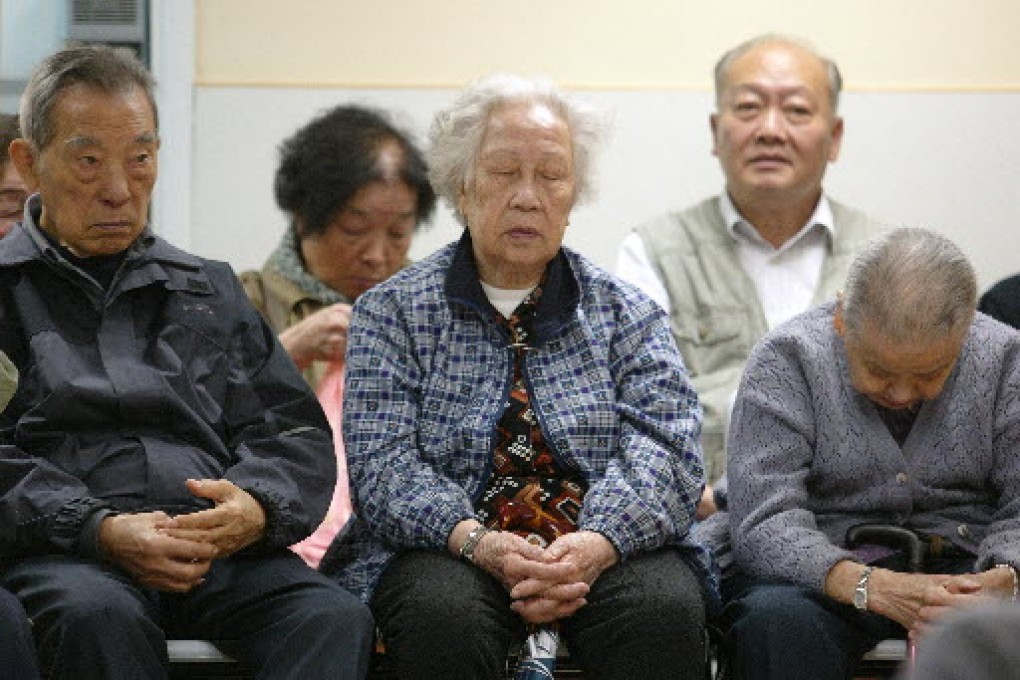Women bear the brunt as Hong Kong's society ages
Su-Mei Thompson says longer life spans for women and their role in looking after elderly relatives need to be factored into health care reforms

A recent front page article in this paper saying that the cost of caring for the city's elderly is set to rise by billions underscores that, as Hong Kong is struggling to meet the health care needs of the city, the elderly population is set to explode.
According to Census and Statistics data, there will be a 77 per cent increase in the number of people aged between 65 and 69 between 2013 and 2041, a 193 per cent rise in the number between 80 and 84, and a 230 per cent increase in the 85-plus bracket.
Meanwhile, a new study has revealed that the government's projected annual growth rate of public health spending - currently estimated at 1.2 per cent - does not correspond to the increase in the elderly population and is far too low.
With government projections showing that women's life expectancy is set to exceed 90 by 2041 (versus 84.4 for men), the need for more comprehensive elderly care is particularly acute for women. Research by The Women's Foundation shows elderly women in Hong Kong are more prone to depression and colorectal cancers than men and are in greater need of primary prevention schemes and psychological services. Allowing more women to have a central role in the design, planning and delivery of services would be a good step to ensuring resources are allocated appropriately and effectively.
At the same time, we know the burden of caring for elderly relatives is largely shouldered by women in Hong Kong. Many end up giving up work or working part-time to care for relatives. According to a recent survey by the Women's Commission, 30.7 per cent of women cited caring for family members as the primary reason they dropped out of the workforce.
Research by the Hong Kong Transition Project revealed that the financial burden of elderly care starts much earlier and endures much longer than one might expect, with 50 per cent of those aged 18-29 starting to contribute towards their parents' and grandparents' upkeep and at least one out of four contributing at least 20 per cent of their income.